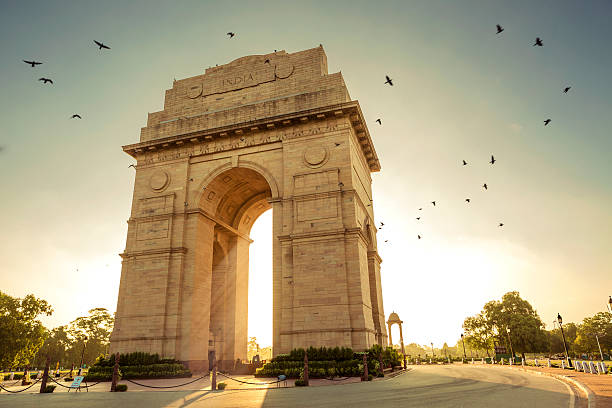Countries

INDIA
India officially the Republic of India is a country in South Asia. It is the seventh-largest country by area and from the time of its independence in 1947, the world's most populous democracy Bounded by the Indian Ocean on the south, the Arabian Sea on the southwest, and the Bay of Bengal on the southeast, it shares land borders with Pakistan to the west China, Nepal, and Bhutan to the north; and Bangladesh and Myanmar to the east. In the Indian Ocean, India is in the vicinity of Sri Lanka and the Maldives its Andaman and Nicobar Islands share a maritime border with Thailand, Myanmar, and Indonesia.
WHY MEDICAL ADMISSION IN INDIA?
India is emerging as the new hotspot for medical Courier across the world. Medical students from every corner of the world are choosing India as their destination for their advanced and cost-effective medical study. In India, they can avail state-of-the-art technology, finest quality healthcare with high recovery rates. India has a multi-payer universal health care model that is paid for by a combination of private and government collages. The public hospital system is essentially free for all Indian residents except for small, often symbolic co-payments in some services.
Medical courses in India are becoming increasingly popular for their quality education and abundant career opportunities. India is home to some of the best medical colleges in the world, offering a range of courses from Bachelor’s degrees to Doctorates.The top medical courses in India are MBBS, BDS, BAMS, BHMS, and B.Sc. Nursing, B.Sc. Medical Technology, B. Pharmacy, BPT, B.Sc. Biotechnology, and B.Sc. in Allied Health Sciences. Each of these courses offers students a comprehensive study of the medical field and prepares them to serve the healthcare industry in various capacities.
Medical Entrance Exam in India- National Eligibility cum Entrance Test (NEET)
The most popular medical entrance examination in India - NEET is conducted to offer admission to candidates in the flagship MBBS and BDS courses across the country. Along with MBBS, NEET score is also accepted nationwide for admission to AYUSH, veterinary and other graduate-level medical courses. Conducted by the National Testing Agency (NTA),
- NEET is a three-hour-twenty-minute-long exam and is conducted offline i.e. pen-paper mode.
- The NEET exam pattern is objective in nature and consists of 200 questions out of which 180 questions need to be attempted from biology (90), physics (45), and chemistry (45) for a maximum of 720 marks.
- There is a negative marking for every wrong answer in the entrance exam.
UNDERGRADUATE (UG)
For a school pass out, to achieve dream of pursuing MBBS,BDS BAMS, BHMS and other courses. one must compete among lakhs of aspirants through the country's biggest medical entrance exam - The National Eligibility cum Entrance Test (NEET). Besides NEET, medical candidates can also appear for BSc nursing entrance exams and state-level veterinary exams. Aspirants must undergo these medical entrance exams to get admission to India’s finest medical institutions.
POST GRADUATE(PG)
Medical graduates wishing to pursue a Doctor of Medicine (MD), Master of Surgery (MS), and PG Diploma have to appear for PG medical entrance tests. National Eligibility cum Entrance Test for Postgraduate (NEET PG) and Institute of National Importance Combined Entrance Test (INI-CET) are entrance exams conducted for PG medical courses in AIIMS, JIPMER, PGIMER, and other institutes across India.
Embarking on a career in INDIA as a medical professional requires careful consideration. ”EAGLE MEDICAL HUB” specialized team offers personalized career counseling sessions to help you explore your interests, strengths, and goals. With our guidance, you can make informed choices about your future in the medical field and set yourself up for success !
SUMMARY OF MEDICAL COURSES
The basic medical qualification obtained in Indian medical schools is MBBS. The MBBS course is four-and-a-half years, followed by one year of Compulsory Rotating Residential Internship (CRRI). The MBBS course is followed by MS, a post-graduation course in surgical specialties, or MD, a post-graduation course in medical specialities or DNB in any medical or surgical specialities, which are usually of three years duration, or diploma postgraduate courses of two years duration. Super or sub-specialties can be pursued and only a MS or MD holder is eligible. A qualification in a super- or sub-specialty is called DM or MCh.

